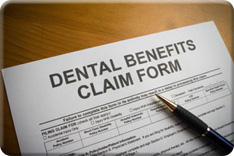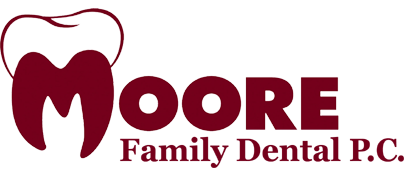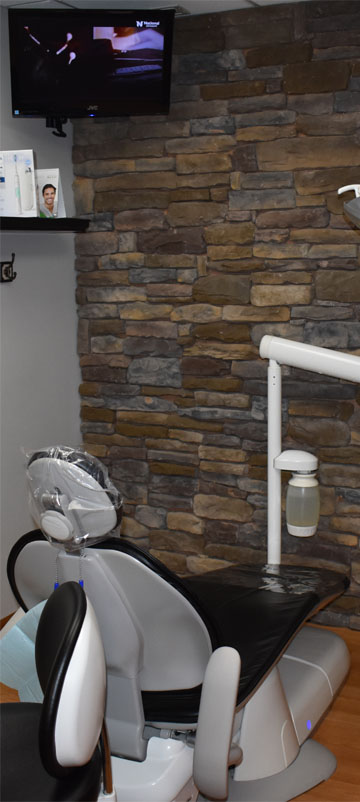 Dental insurance is designed to assist individuals with paying for required dental services. Unfortunately, the Centers for Disease Control and Prevention states that more than 108 million Americans do not have dental insurance. In fact, for every one adult who has medical insurance, there are three adults who do not.
Dental insurance is designed to assist individuals with paying for required dental services. Unfortunately, the Centers for Disease Control and Prevention states that more than 108 million Americans do not have dental insurance. In fact, for every one adult who has medical insurance, there are three adults who do not.
Dental Insurance Coverage
Dental insurance covers many preventative dental procedures like teeth cleaning, X-rays and other treatments. However, the level of reimbursement for dental procedures varies based on the insurance carrier. For example, many dental insurance plans cover fillings, but the reimbursement charge can differ depending on the type of material used for the filling. Consumers should also keep in mind that cosmetic procedures, such as teeth whitening or bleaching, are rarely covered by dental insurance. When researching different insurance carriers and plans, people should consider the following questions:
- Does the plan cover preventative treatments?
- Are emergency dental services covered?
- What sorts of major dental work are covered?
- Is there a wide selection of dentists available or only a small network?
- Do dentists have a large network of specialists to work with?
- What is the deductible?
- What is the co-payment amount?
Comparing Dental Discount Plans to Dental Insurance
Joining a dental discount plan is an alternative to obtaining dental insurance, but they are quite different. A dental discount plan is merely an agreement by member dentists to provide services at a discounted rate. Patients show a discount membership card and pay less than a typical patient. When using a dental discount plan, the patient does not work with an insurance company and receives no insurance benefits. However, the cost of belonging to a discount dental plan is typically less than yearly dental insurance costs. Another benefit of dental discount plans is the lack of co-payments or deductibles.
While dental discount plans may save patients money on preventative services, these plans do not offer significant discounts on specialized or emergency services. Naturally, patients will have to carefully weigh their dental care needs before choosing their coverage.
Types of Dental Insurance
The American Dental Association groups the types of dental insurance into five categories:
- A Direct Reimbursement program offers a percentage of dental costs back to the patient, no matter what treatment is received.
- A UCR program pays a set percentage of the amount the plan has determined to be a “usual, customary or reasonable” fee. However, there are no set regulations determining the amount of these costs. The patient must pay the portion that is not covered by a UCR insurance plan.
- A Schedule of Allowance insurance program provides patients with a list of services the program covers and the amount the maximum amount they will reimburse the policy holder. The patient, then, must make up the different.
- Preferred Provider Organization (PPO) programs have member dentists who offer discounted rates to attract patients. However, if a patient uses a non-PPO provider, no benefits are allotted.
- Capitation programs have member dentists who are paid a fixed amount per patient or family. The enrolled patient pays no fees for certain services and pays a co-payment for others.
Where to Get Dental Insurance
Many employers offer dental insurance to employees. According to a 2004 report by America’s Health Insurance Plans (AHIP) and LIMRA International, 51 percent of employers believe their employees consider dental insurance to be the most important benefit after medical insurance. The report also states that 58 percent of employers offer dental insurance. One downside to dental insurance offered by employers is the lack of choices. An employee gets whichever insurance carrier and plan the employer decides on, without the option of choosing a benefits plan.
Individuals who do not receive dental insurance from an employer have the option of purchasing dental insurance through a major insurance carrier. These carriers offer individual dental insurance for the self-employed and their families. Using a large health insurance search engine like eHealthInsurance.com eases the process of finding the right dental insurance. A health insurance search engine takes information provided by the consumer and searches for the most suitable dental plans. Some health insurance quote sites will also assist in application and follow-up procedures required by the chosen insurance company.
If you have questions about dental coverage or your specific policy, please feel free to contact Moore Family Dental for assistance. We can provide payment plans and incentives for those without insurance. We’re always happy to help.



